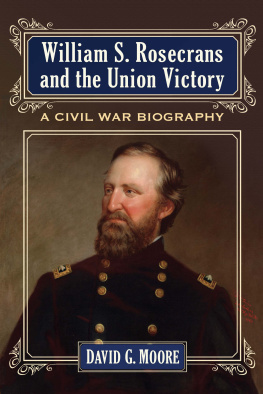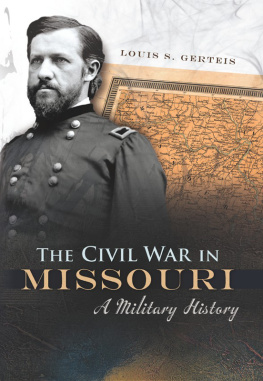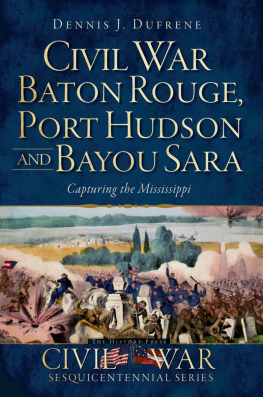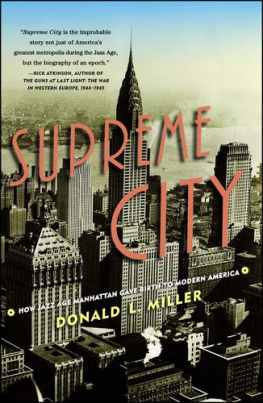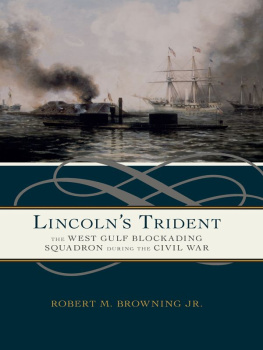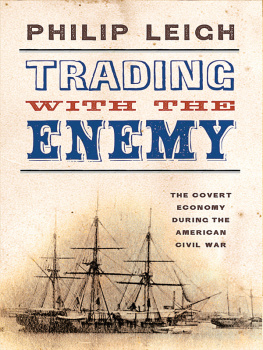Due to variations in the technical specifications of different electronic reading devices, some elements of this ebook may not appear as they do in the print edition. Readers are encouraged to experiment with user settings for optimum results.
Copyright 2016 by The University Press of Kentucky
Scholarly publisher for the Commonwealth,
serving Bellarmine University, Berea College, Centre College of Kentucky, Eastern Kentucky University, The Filson Historical Society, Georgetown College, Kentucky Historical Society, Kentucky State University, Morehead State University, Murray State University, Northern Kentucky University, Transylvania University, University of Kentucky, University of Louisville, and Western Kentucky University.
All rights reserved.
Editorial and Sales Offices: The University Press of Kentucky
663 South Limestone Street, Lexington, Kentucky 40508-4008
www.kentuckypress.com
Photographs are courtesy of the Library of Congress.
Library of Congress Cataloging-in-Publication Data
Names: Tomblin, Barbara, author.
Title: The Civil War on the Mississippi : Union sailors, gunboat captains, and the campaign to control the river / Barbara Brooks Tomblin.
Description: Lexington, Kentucky : University Press of Kentucky, 2016. | Includes bibliographical references and index.
Identifiers: LCCN 2016011181| ISBN 9780813167039 (hardcover : alk. paper) | ISBN 9780813167053 (pdf) | ISBN 9780813167046 (epub)
Subjects: LCSH: Mississippi River ValleyHistoryCivil War, 18611865 | United StatesHistoryCivil War, 18611865Campaigns. | United StatesHistoryCivil War, 18611865Riverine operations. | United StatesHistoryCivil War, 18611865Naval operations.
Classification: LCC E470.8 .T66 2016 | DDC 973.7/462dc23
LC record available at http://lccn.loc.gov/2016011181
This book is printed on acid-free paper meeting the requirements of the American National Standard for Permanence in Paper for Printed Library Materials.
Manufactured in the United States of America.
| Member of the Association of
American University Presses |
Introduction
When the citizens of St. Louis, Missouri, picked up copies of the Daily Missouri Republican on Sunday, April 14, 1861, a headline announced: Probable Commencement of the Civil War at Last. The following day, the paper printed news of Fort Sumters unconditional surrender and Major Robert Andersons refusal to strike the flag. When the bombardment of Fort Sumter ended on April 14, former army officer William Tecumseh Sherman recalled, We then knew that war was actually begun.
In Washington, President Abraham Lincoln learned of Fort Sumters surrender on Saturday, April 13. The following morning after church services, he called a meeting of his cabinet, which had been grappling for several months with the thorny issue of whether to reinforce and supply Fort Sumter or evacuate it. Now that Anderson had capitulated, Lincoln and his cabinet were faced with critical decisions regarding what attorney general Edward Bates called an open war.
Bates, a longtime resident of the Mississippi Valley, may have considered it open war, but without the consent of Congress, which was not in session, President Lincoln could not declare war. He could, however, issue a proclamation calling for the states to raise a total of 75,000 militiamen for ninety days service. Lincoln informed the cabinet of his decision, and the following day a call-up was issued to all but the seven rebellious states of Louisiana, Texas, Mississippi, Alabama, Georgia, Florida, and South Carolina.
Newspapers in the Northeast predicted the war would be over in a matter of months. Most greeted the presidents April 15 proclamation positively. The fall of Fort Sumter had stirred strong patriotic feelings among those in the Northeast and parts of the Midwest. Small towns from New England
Not everyone in St. Louis agreed with Jackson, however. A little over a week after the fall of Fort Sumter, Sherman wrote to his brother John from his office at the Fifth Street Railroad Company and expressed his approval of the presidents decision. Sherman had definite opinions about how the war should progress: I take it for granted that Virginia will be attacked with great force this summer, and that the great problem of the... Mississippi will be reserved for the next winter. As Sherman and many other loyal citizens in the upper Midwest knew, keeping the Mississippi River open to navigation and commerce would be critical to a Union victory over the new Confederate States of America. Sherman conveyed this view to Thomas Ewing, predicting that this would be the hardest and most important tasks of the war.
The US Armys general in chief, Lieutenant General Winfield Scott, shared Shermans appreciation of the importance of the mighty Mississippi River. On March 3, in anticipation that Lincoln would be safely inaugurated and that Secretary of State William Seward would be the head of his cabinet, Scott had sent Seward a memorandum outlining four plans to meet what he termed the extraordinary exigencies of the times. Scott predicted that in less than sixty days the remaining slaveholding states would join the Confederacy. He then listed several possible courses of action: to close the ports over which the government had lost command and blockade them, to conquer the seceded States by invading armies, or to say to the seceded States, Wayward sisters, depart in peace. The general advised that an invasion of the South might succeed in two or three years, given a young and able general, but it would require a force of 300,000 disciplined men. Furthermore, Scott argued, The destruction of life and property on the other side would be frightful and would be completed at the enormous waste of human life to the North and Northwest and incur a large national debt. Although Scott did not specifically endorse any one of these plans, he favored a blockade of Southern ports as a less expensive, more indirect means of bringing the seceded states back into the Union.
Within days of the fall of Fort Sumter, Lincolns cabinet debated the
Though once a formidable warrior, Scott was now seventy-four years old and physically worn out, but he had not lost his keenness of mind or determination to serve his country. Scotts overall strategy, which became known as the Anaconda Plan, was to prosecute the war in a two-step process. First, the Union navy would establish a blockade of the Southern coast, closing all the ports the Confederacy could use to export cotton and other commodities or to import goods and war materials. Second, joint army-navy forces would use the Mississippi and Ohio Rivers as a natural highway into the Southern states, seizing and fortifying supply bases from which to advance farther down the river into the Mississippi Valley. A larger army would then follow as the advance force seized even more bases at Memphis, Vicksburg, and finally New Orleans. Critics considered the plan too slow, and they ridiculed such an indirect approach to crushing the rebellion, but as historians have noted, Scotts proposed thrust down the Mississippi River was the only direct combat envisioned by the Anaconda Plan.


